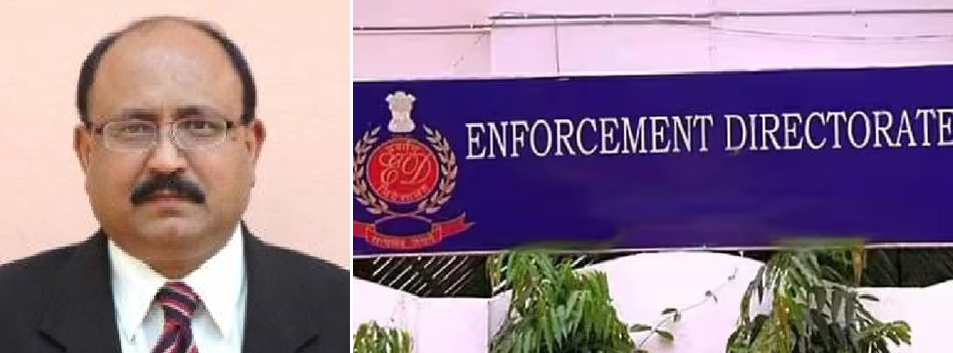PMLA Court dismisses ED case against journalist Rajeev Sharma

PMLA Court dismisses ED case against journalist Rajeev Sharma
Court says ED can’t exercise jurisdiction under PMLA
Delhi Crown Bureau
New Delhi: Senior journalist Rajeev Sharma, who was charged with an “espionage” case nearly five years ago has been proven “not guilty”, even as the trail court rejected the Enforcement Directorate’s (ED) contention that Sharma had stolen secret information (scheduled offence) before passing it on further.
In her 13-page order dated July 16, Additional Sessions Judge (ASJ) Aparna Swami said, “This court emphatically rejects the Enforcement Directorate’s contention that Section 411 IPC can be treated as implicitly involved in the present matter. The existence of a Scheduled Offence must be real and demonstrable on the basis of the prosecution’s case; it cannot be the product of speculative or inferential reasoning. To allow the plea of the Enforcement Directorate to proceed on an imagined Section 411 IPC offence would be violative of the statutory scheme of the PMLA and would open the floodgates to prosecution’s complaints being founded on a non-existent predicate. This would be contrary to the Hon’ble Supreme Court’s dictum.”
(Section 411 of the IPC deals with the offense of “dishonestly receiving or retaining stolen property”. It essentially means that a person is liable under this section if he received or kept stolen goods knowing or having reason to believe they were stolen.)
The order was pronounced in the open court on July 16, but made public only on August 4.
Outrightly rejecting the ED’s case against Rajeev Sharma, the lady judge observed – “The commission of a Scheduled Offence is the very foundation on which a money laundering charge rests. If the foundation fails, the superstructure (herein PMLA case) must collapse.”
She also observed – “It is deduced that a conspiracy to commit offences under the Official Secrets Act, which are not scheduled, does not itself become a Schedule Offence. The Hon’ble Supreme Court of India categorically ruled that, in the absence of any scheduled offence, the Enforcement Directorate cannot exercise jurisdiction under the PMLA.”
The lady judge further observed that the existence of the scheduled offence was a condition precedent for any charge of money laundering. “No property can be termed as ‘proceeds of crime’ under the PMLA unless it originates from the commission of one of the offences enumerated in the Schedule of the Act. In short, if there is no ‘scheduled offence’, there can be no money laundering offence, for want of ‘proceeds of crime’.
In her concluding remarks, the lady judge said that the predicate offences under Sections 3, 4 & 5 of Official Secrets Act and Section 120-B of IPC were “not Scheduled Offences under the PMLA”.
“No amount of inventive argument can make good this fundamental deficiency. Accordingly, accused persons namely Rajeev Sharma and others stand discharged in the present case. The pending application for separation of trial is dismissed as having become infructuous,” she added.
The 39-paragrah lengthy order was relied on various landmark SC judgements, including “Pavana Dibbur Vs. Directorate of Enforcement (2023)”, “Yash Tuteja Vs. Union of India & Anr., WP (Crl.) No. 153/2023”, and the “Anjaneya Hanumanthaiah Vs. Union of India, WP (Crl.) No. 281 of 2019”.





